Chess, a great board game of the USSR: Lenin sets the trend as the game reaches space
Chess came to Ancient Rus over 1100-1200 years ago but were persecuted by the church until the second half of the XVI century. Labelled as a devil’s game, chess was equated with drinking and gambling. It could easily lead to excommunication and officially, the prohibition was never lifted.
However, In Ivan Grozny’s time chess became publicly legal and normal (a legend says the tsar died while arranging the pieces). Peter the Great became the ambassador of the game in Russia. In the Soviet time, chess was popularised by Vladimir Lenin. The game was an important part of his life, one of his passions.
A famous shot: At Maxim Gorky’s, Lenin plays against his political opponent Alexander Bogdanov. Gorky, a prominent Russian writer and also chess admirer, watches on.

“Send me one of our games of chess,” Lenin wrote to Nadezhda Krupskaya from his exile. “There are players here in Minusinsk and I’d gladly roll back the years. I was wrong to think Eastern Siberia is a wilderness where chess is unheard of.”
After 1917, the Soviet government went to great lengths to propagate the game. All-Union chess group, an equivalent of the modern federation, was founded in 1924. The following year a super tournament was held in Moscow. Jose Raul Capablanca, Emanuel Lasker and other world stars were invited. It worked out, the trend caught on.
Sports groups emerged in the 30s in Pioneer Halls, a place for extracurricular activities for Soviet kids after school. Chess popularity only grew after the Second World War. One of the key reasons was the world champion title won by Mikhail Botvinnik in 1948, the first time a Soviet citizen triumphed at the biggest stage.
The game in Moscow in 1948: Botvinnik against Samuel Reshevsky (US).

In the 24 years that followed, chess players from the USSR won the world crown (and played in the finals). Those were also ideological victories against the West.
In 1969, writer Lev Kassil and world champion Vasily Smyslov conceived an all-union tournament for schools – ‘Belaya Ladja’ (White Rook). That was an analogue of ‘Kozhany Myach’ (Leather Ball) and ‘Zolotaya Shaiba’ (Golden Puck). First schools competed in their cities, then against those from other regions, then, possibly, at an even grander scene.
10 years later every kid knew about the competition, over a million pupils had taken part. Nearly every school had a chess club, some had extracurricular classes dedicated to the game.

Four magazines about chess were in press at the same time: ‘64’, ‘Chess in the USSR’, ‘Chess Bulletin’, ‘USSR Central Chess Club Bulletin’. There were also some newspapers and TV programme called ‘Chess School’.
A game of chess at friends’ – the best board game of that time.

From the middle of the 60s, chess entered backyards where lottery and cards had been traditionally popular games.
Here’s what was casually happening in the 70s in the city park of Angarsk (Irkutsk Oblast).

Everyone was in the game: moms played their children in Sokolniki park…

… pensioners in the streets…

...and even Tundra dwellers.
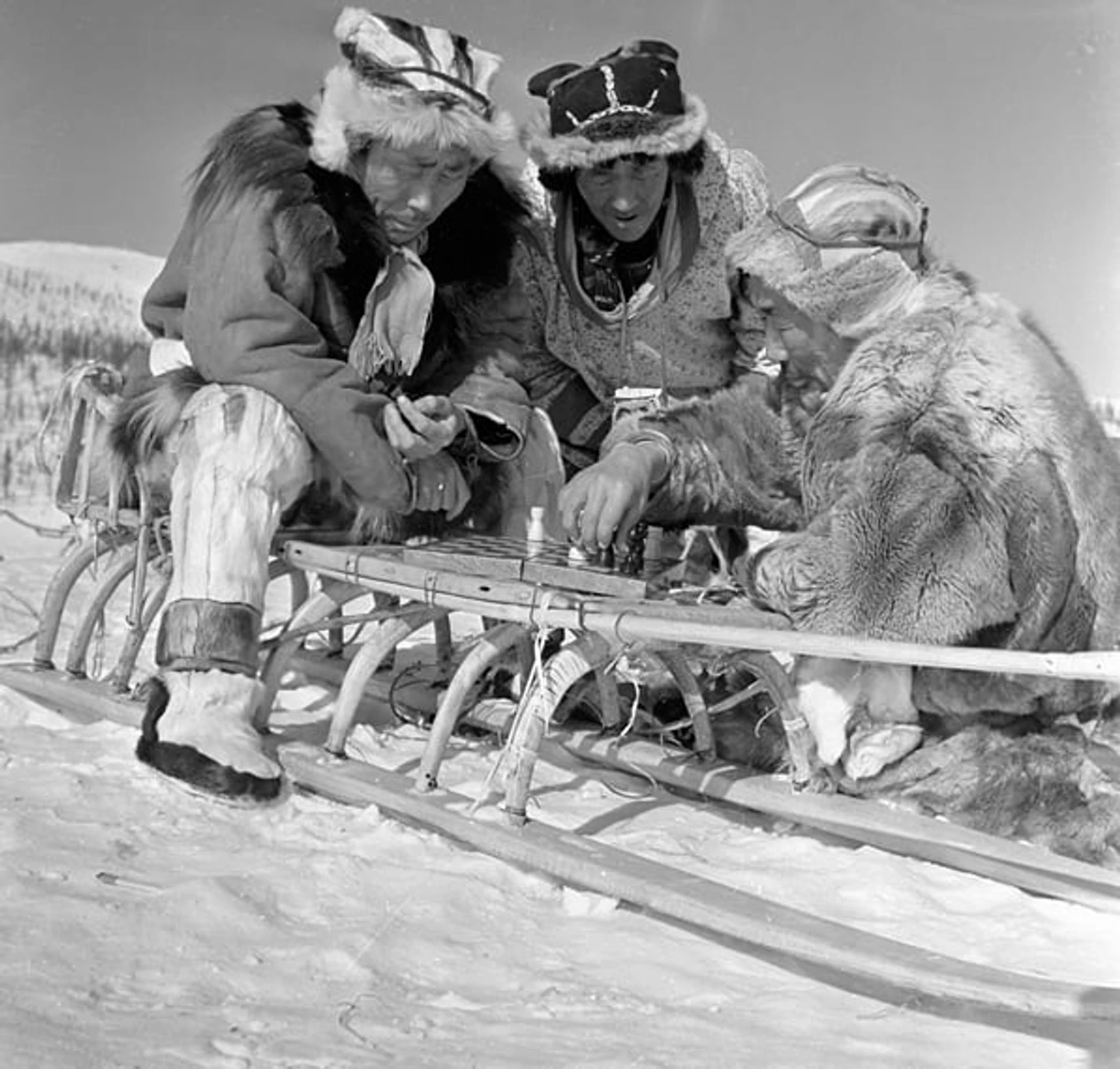
Virtually every backyard had a stationary game table (or a gazebo). To have a crack, people spent hours in the queues.
The middle of the 70s, Togliatti Park: different generations and social groups.

Mass chess spaces were a sign of proper sanatoriums and rest homes. Normally they were installed near administrative houses which automatically made them one of the landmarks. Few played there but connoisseurs gathered around and talked chess there.
Large chess boards were placed in Culture Houses and those were for the real games. Corporate tournaments were held at factories.
Steel factories’ workers at it; for some it’s too serious, there are clocks on the table.
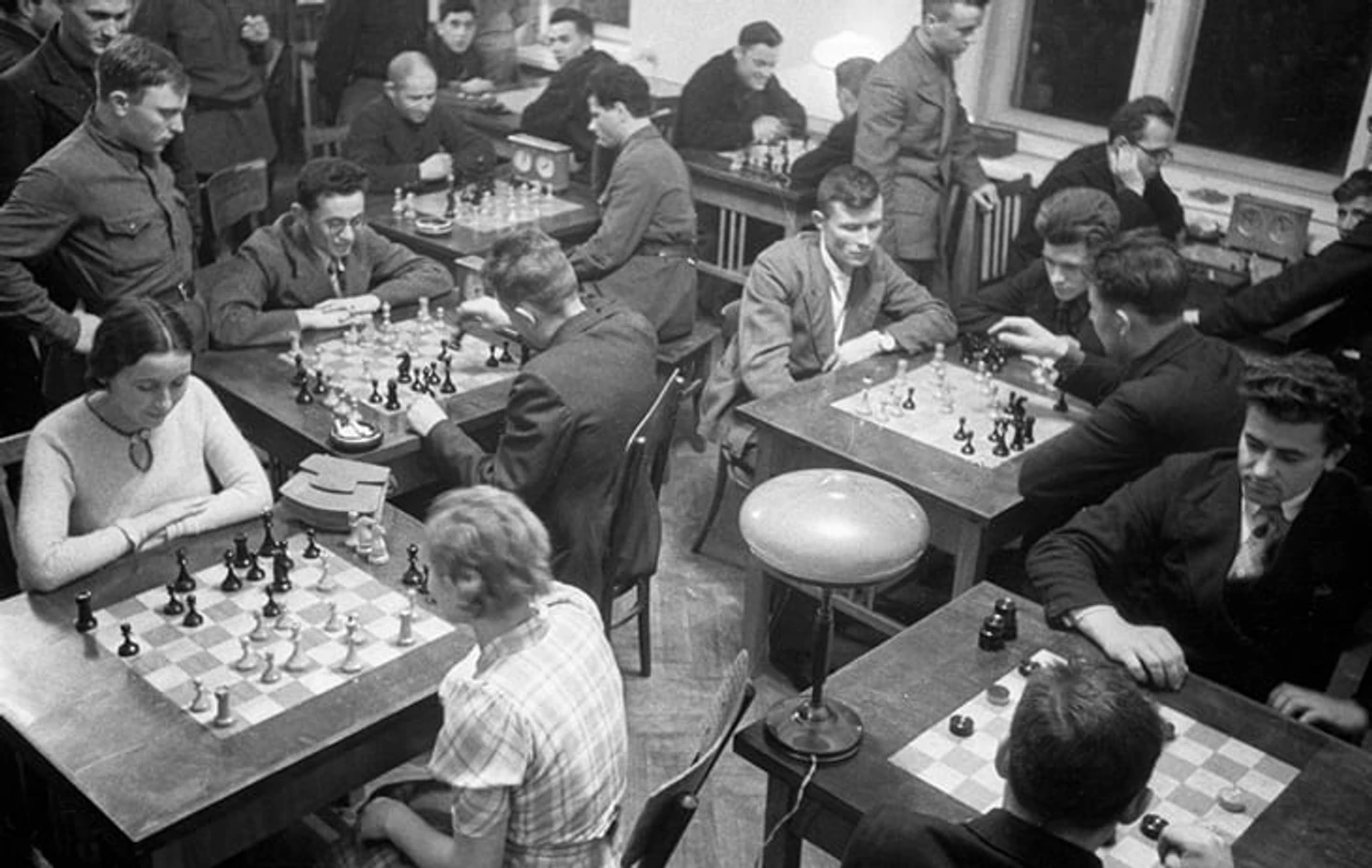
Lunch break at a construction site of a steel plant in Bokaro.

Chess as a spectacle: a game in the Big Hall of the Moscow Conservatory, USSR 1960 championship.

Even during the World War soldiers had rest around the chess board. Stripes, holster, reinforcements and cardboard (on the shore of Lake Ilmen, summer of 1943).
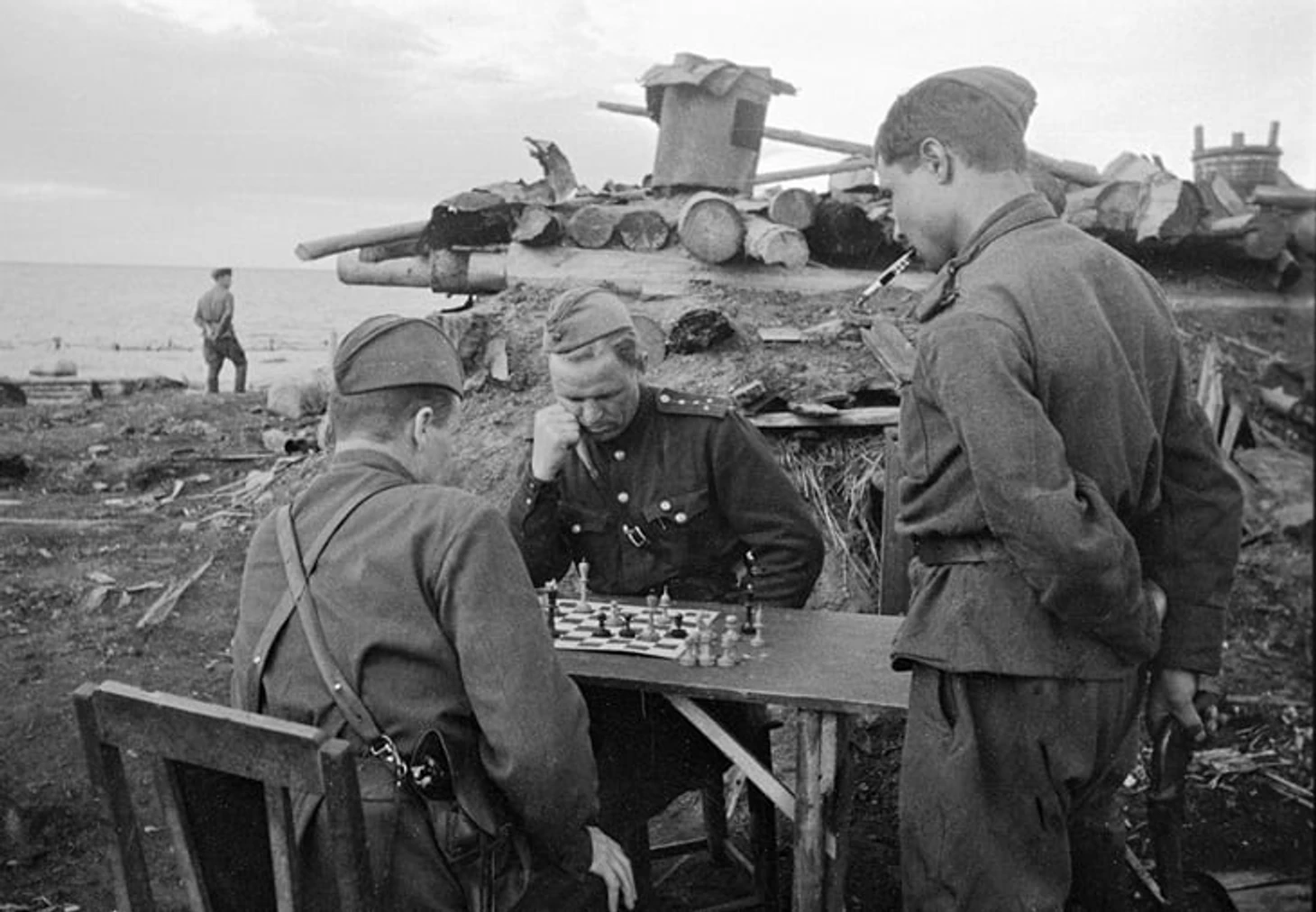
Peace time: scouts (or rather pioneers, as they were called then) somewhere in the Moscow suburbs.
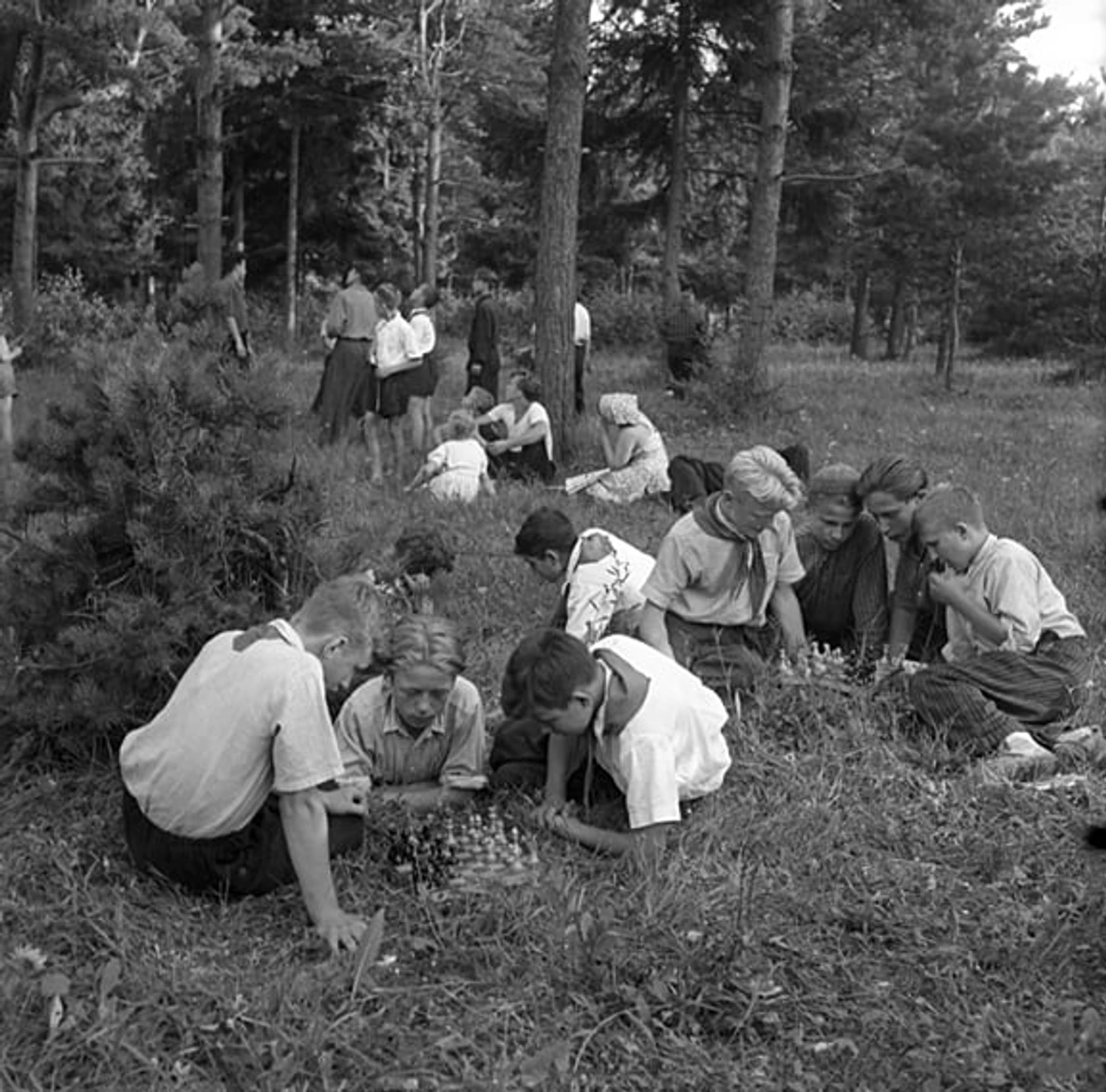
On a Evpatoria beach.

A shot from the film ‘People on the Bridge’, a game between Lena (Alexandra Zavyalova) and Ivan Bulygin (Vasily Merkuriev).
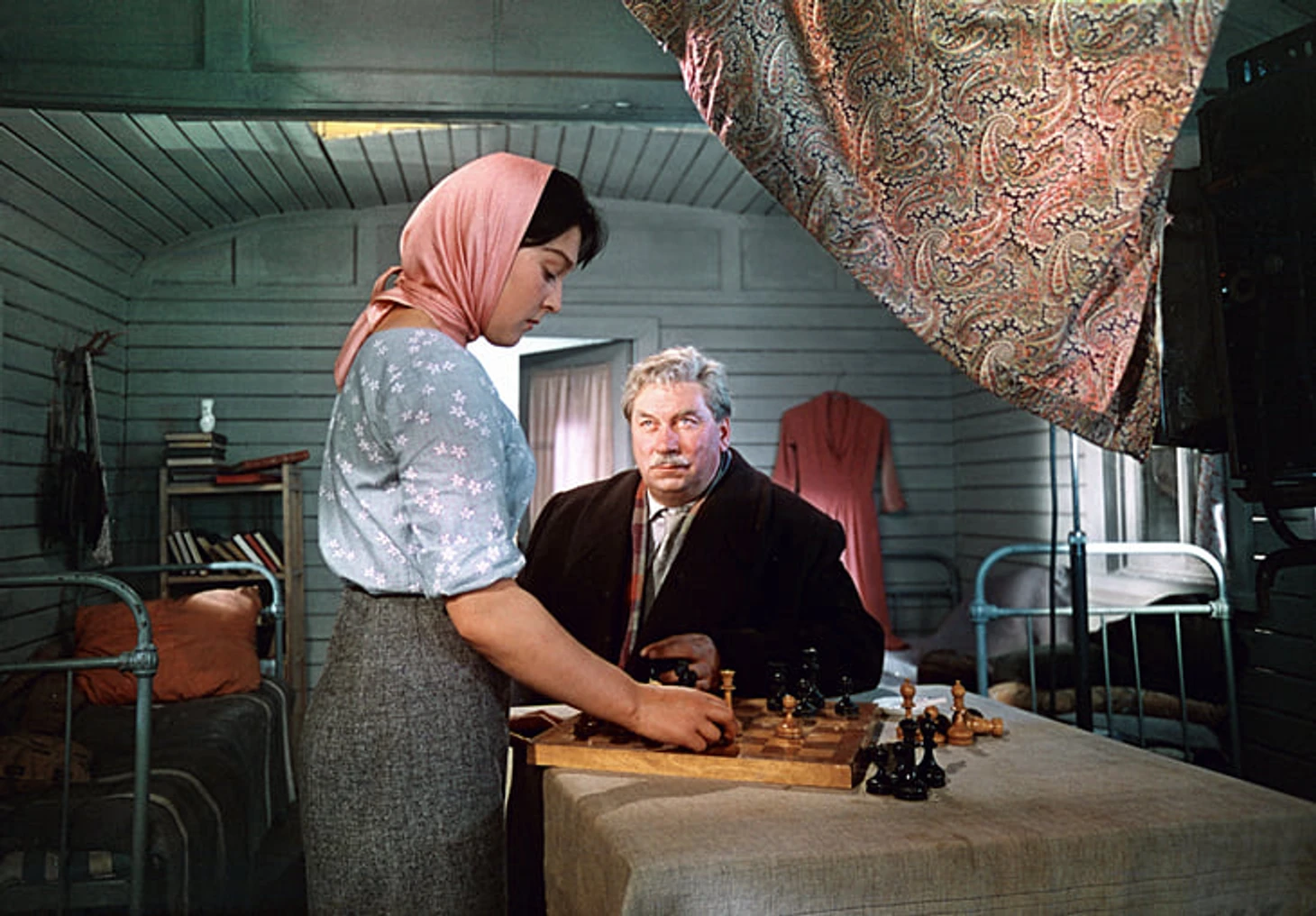
Smart leisure time for Tselina (Virgin Lands) workers in a Kazakh steppe, some time around the 1960s: accordion, phonograph, dancing, chessboard… by night everyone goes back to their cabin.
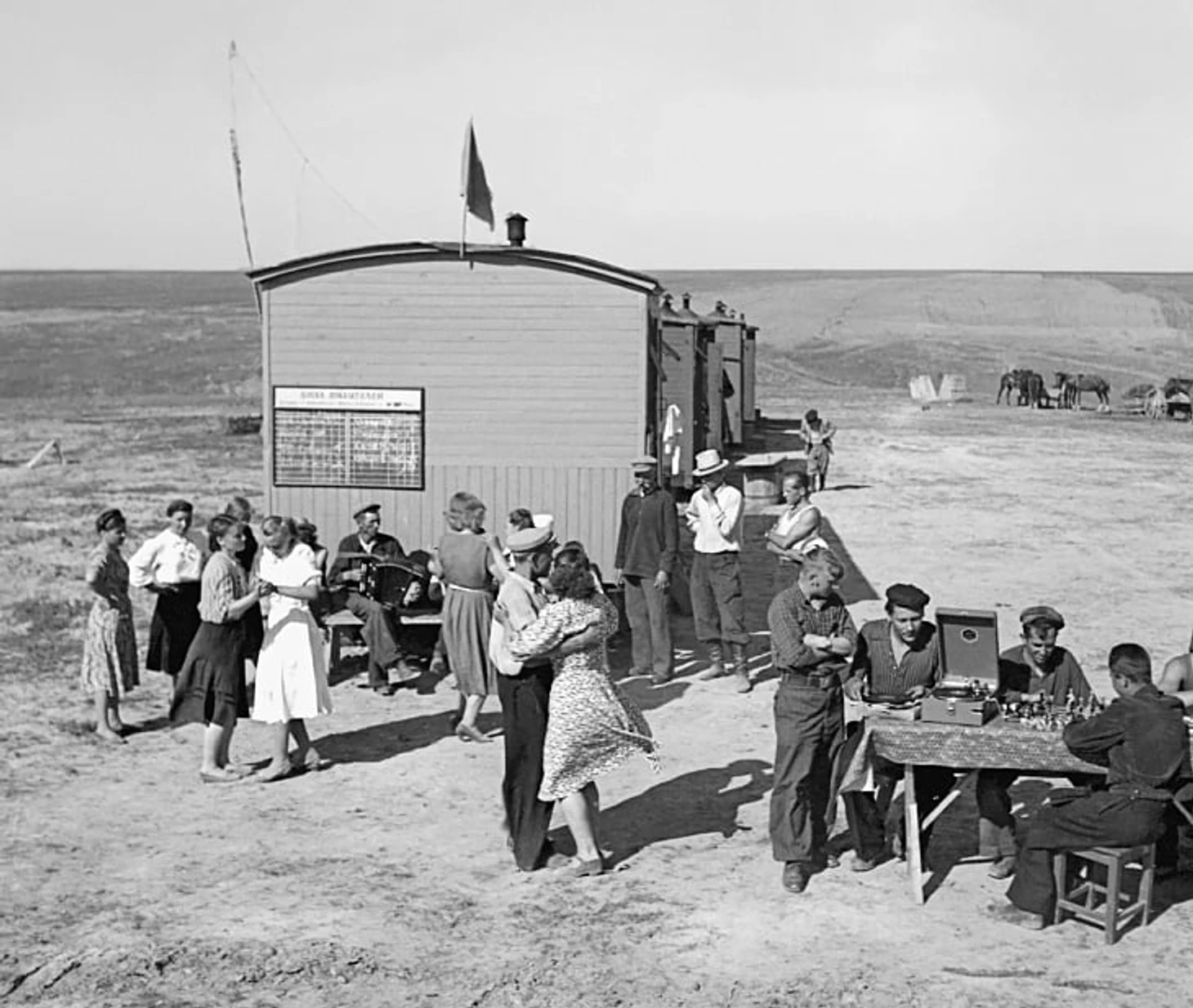
Same epoch, same country, just a few thousand kilometres to the west. Coffee and chess at a cafe in Tallinn.

Border guards are enjoying a cultural event by having a game.

Even 100-year-old mountain men from Abkhazia village Lykhny spend their team near the board.

Ricky the Monkey and her trainer Stepan Isaakyan.

70s. Simultaneous chess for sailors of the Baltic Fleet.

Their colleagues submariners are in house of rest ‘Chernomor’. Playing chess, of course.

Soyuz-9 commander Andriyan Nikolaev has an online game of chess with his colleague who stays on Earth (a shot from the film ‘Back to the Future’).

Soyuz TM-2 crew are ready to set out for Mir space station. From left to right: flight engineer Alexander Serebrov, spacecraft captain Vladimir Titov, and group commander Vladimir Dzhanibekov.

One of the first human-machine battles: Institute of Control Sciences RAS employee challenges EBM.

Well-known ophthalmologist Svyatoslav Fedorov is having a rest at his dacha.

The dacha was the fountainhead of energy for Fedorov. He also spent a lot of time skiing there.
The 80s were marked with the Anatoly Karpov vs Garry Kasparov rivalry, arguably the most iconic one in the history of chess. Karpov had sold-outs already in the 70s. Here’s his exhibition game in 1978 at a sporting event dedicated to the 18th all-Union party gathering.

A round of a simultaneous game in 1980.

In 1982, Kasparov attracted fewer people: a game in a park square, three years before his first world champion title.
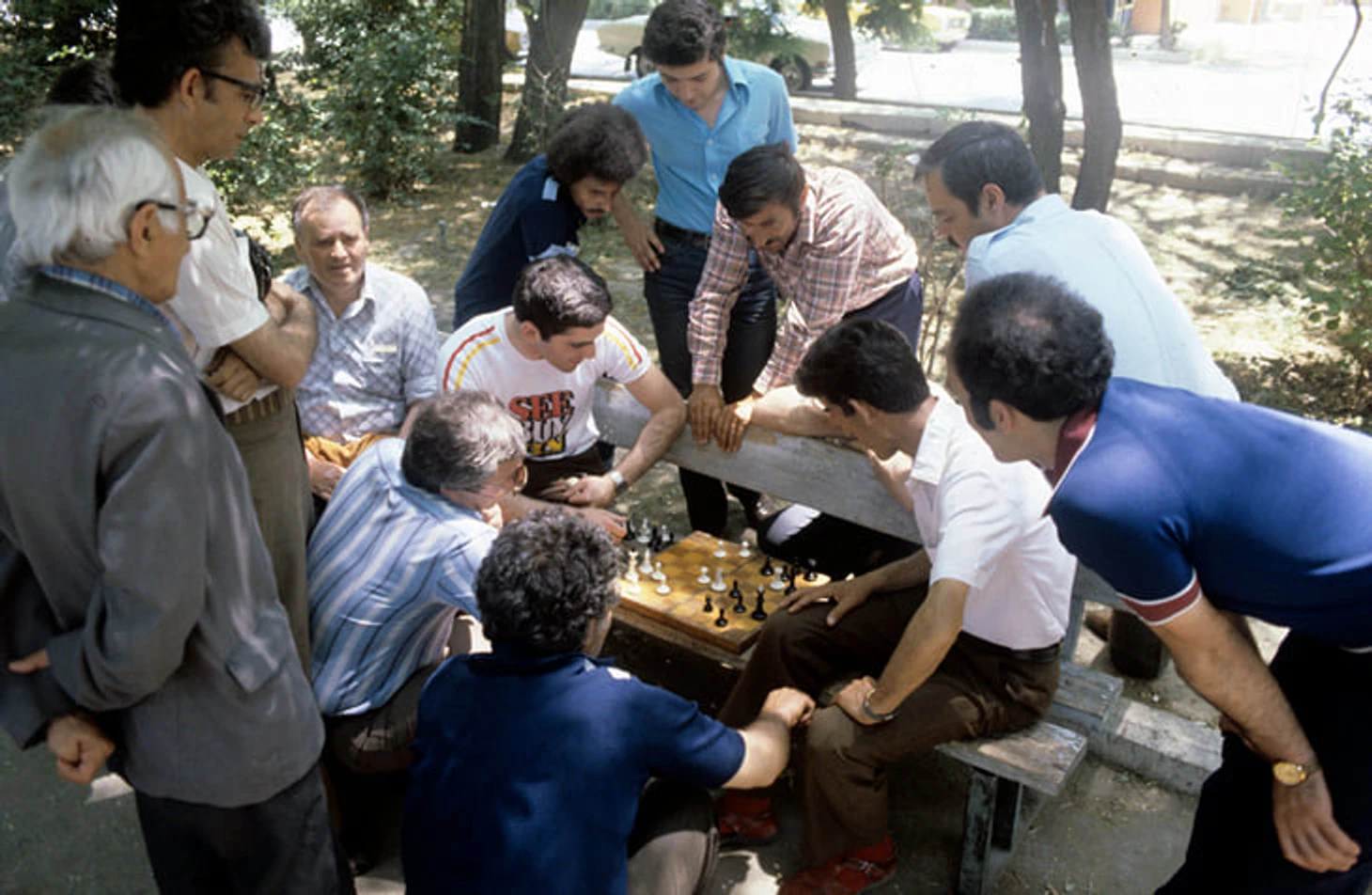
The clash of “Two Ks”: 5 rounds of games between Karpov and Kasparov (from 1984 to 1990) is the golden age for chess in the USSR. The whole country was all eyes.
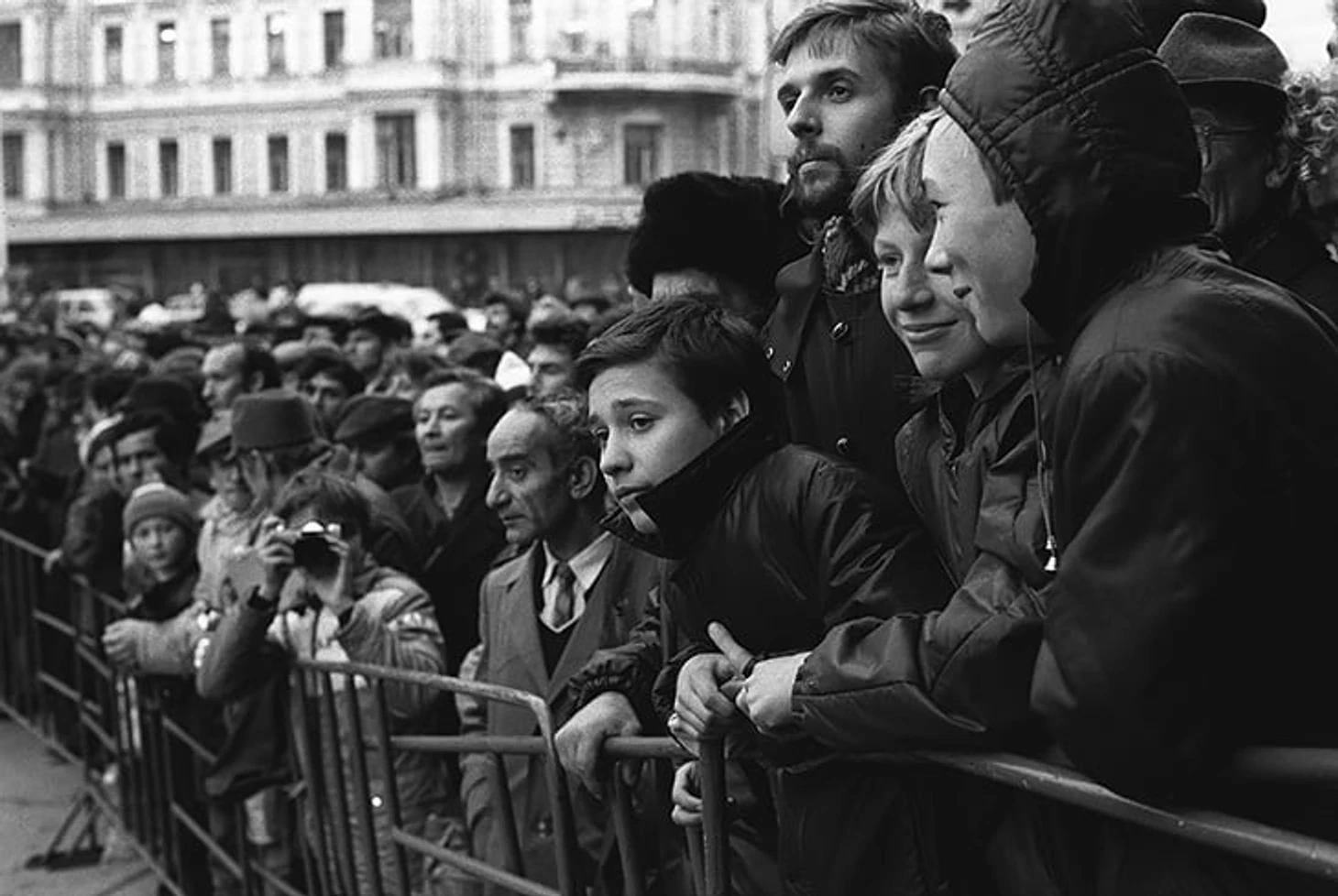
House of the Unions, Tchaikovsky Concert Hall, Leningrad hotel… the venues were crammed full of people to follow the contest.

Karpov only managed not to lose in the first year (a host of draws led to the tournament being halted). Karpov claimed the trophy all the following years.

The meeting between the two in 1990 was the last one: the rift within the World Chess Federation, as well as the USSR collapse followed. The interest in the game gradually waned.

In modern Russia, chess is not in oblivion only thanks to online service where the game now thrives.
Here’s Valentina Danilko, a woman already in her 70s. She studied at that very School Number 1 in Beslan. For years, she has stayed with the ‘[I] Teach chess’ banner near a Moscow Metro station. Magazine ‘Mel’ has a heart-warming article dedicated to her.

Despite the attempts from the Ministry of Education to introduce chess to schools as an obligatory subject, the game’s nowhere as popular as it used to. Pilot projects started in Moscow in 2015 and Khanty-Mansi Autonomous Okrug. Other regions should follow soon.
When was the last time you’ve played chess?
Фото: РИА Новости/РИА Новости, Анатолий Гаранин (2,5), Юрий Абрамочкин (3,19), Владислав Микоша, Сергей Коршунов, М. Филимонов, Родькин, Раскин Семён, Александр Макаров, Мирослав Муразов, Лев Поликашин, Юрий Сомов, Борис Кавашкин, Олег Галушко, И. Макаров, Владимир Первенцев, Лев Гаркавый, Дмитрий Донской (20,28,29); Gettyimages.ru/Keystone; РИА Новости/Валерий Шустов, Рудольф Алфимов, Рыбчинский, Михаил Кухтарев, Владимир Родионов, Школьный, Виталий Савельев, Александр Моклецов, Дубейковский, Борис Кауфман(30-34); facebook.com/ksenia.alekhina




